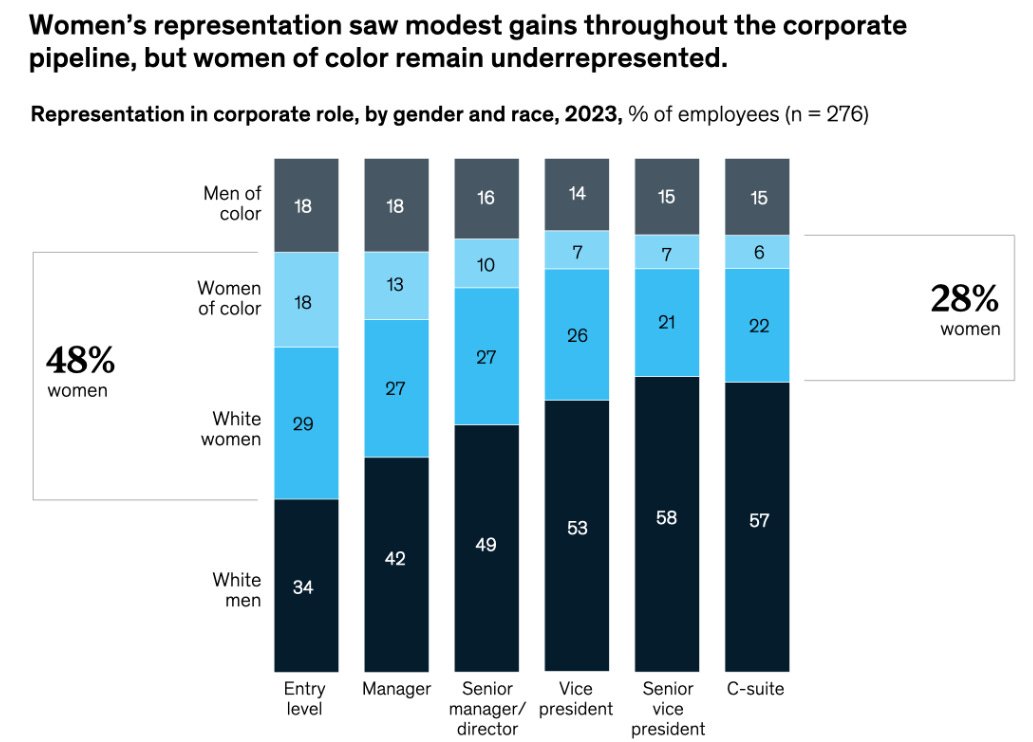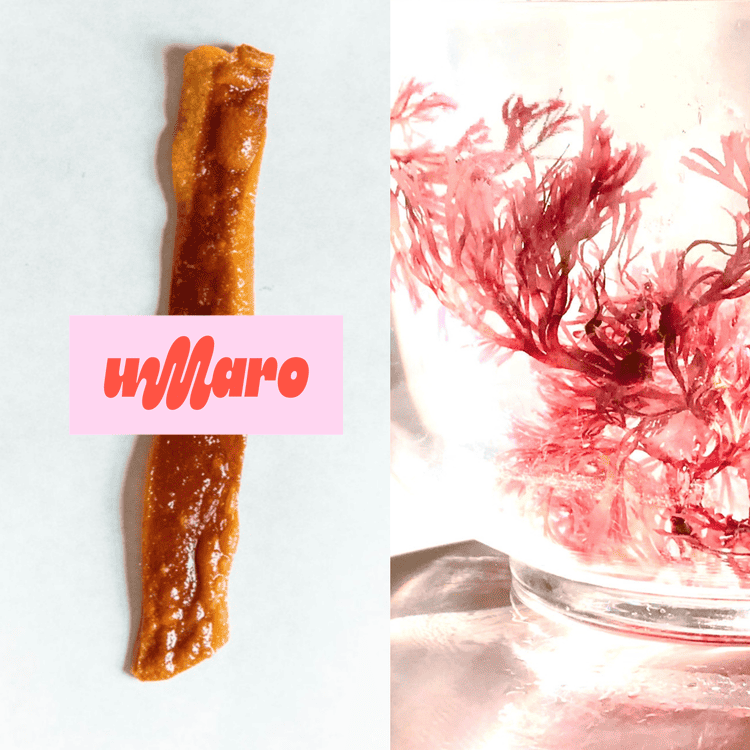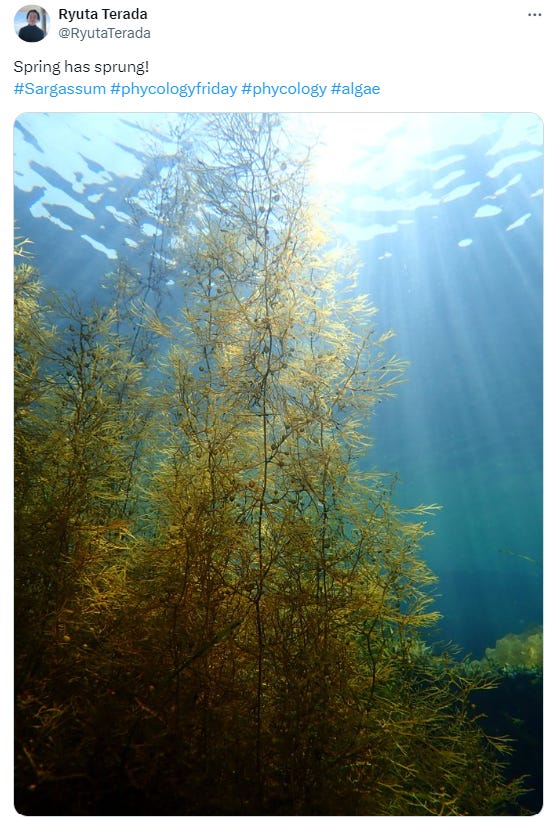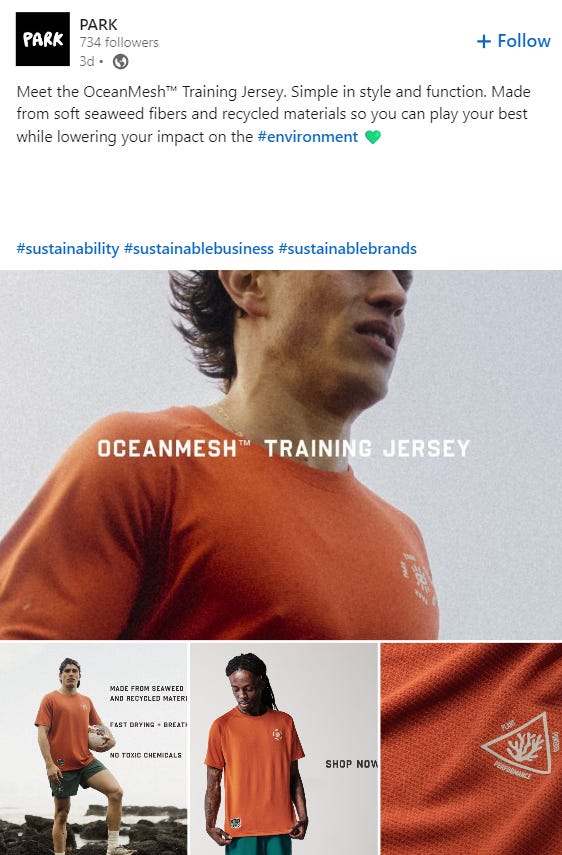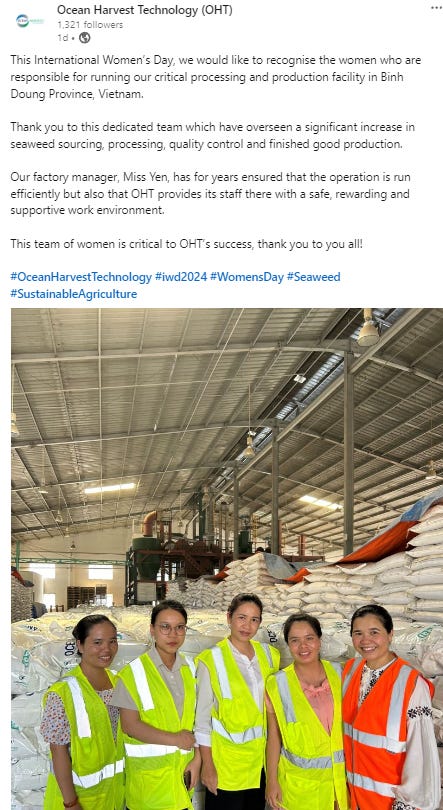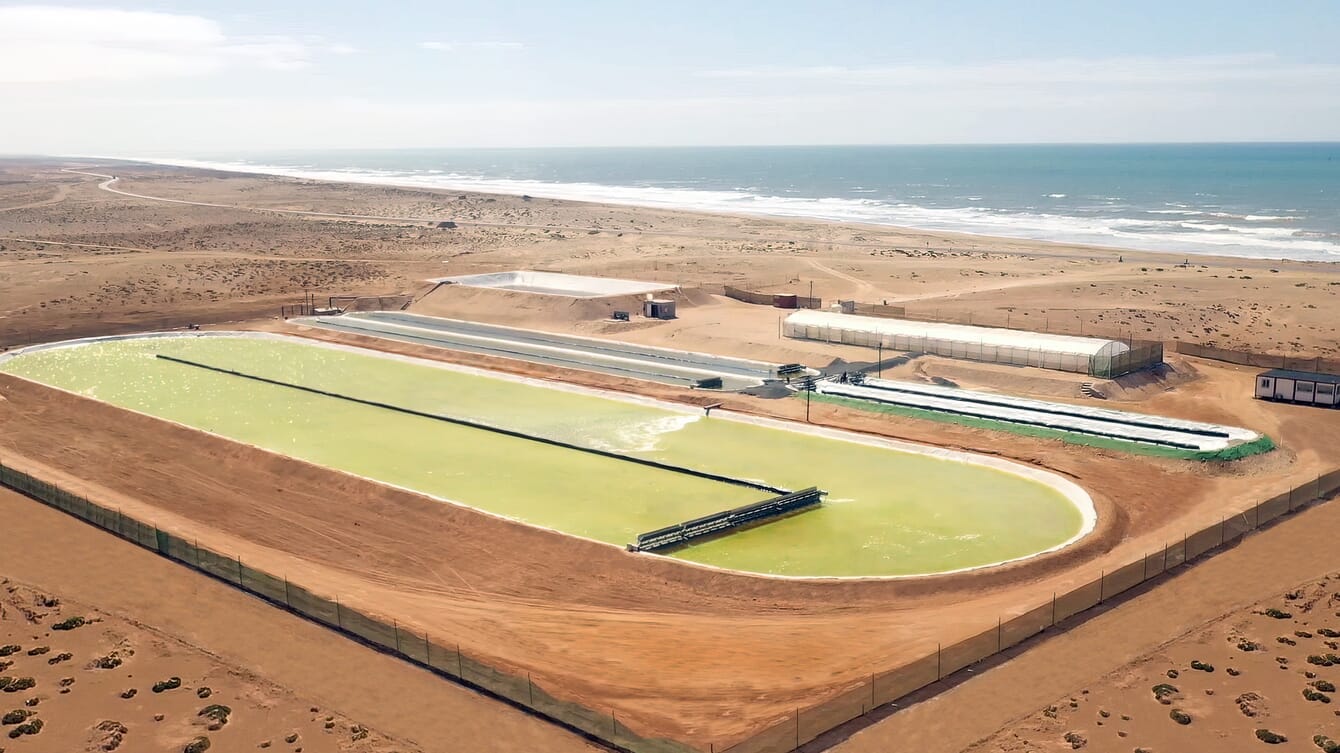“Our data shows that about 40% of all the startups in the seaweed sector are led by women.” — David Jose Vivas Eugui, section chief for trade, environment, climate change and sustainable development at UNCTAD.
Dear seaweed and microalgae investors, buyers, operators, and technologists, welcome to another edition of the Paxtier Report!
Food for thought this week…
Following International Women’s Day on March 8th, which celebrated numerous fantastic achievements worldwide, some discussions began to point out the potential drawbacks of celebrating the occasion. Specifically, the following question arose: does setting aside this day unintentionally suggest that such accomplishments are rare rather than commonplace?
While I’m not the right person to answer this question, it’s clear that the worldwide seaweed and microalgae value chain depends everyday on the dedicated efforts of remarkable women. And so, in this short essay, let’s explore some key statistics that highlight the daily success stories for women in the algae economy.
Current Landscape for Women in Seaweed in Developing Countries
Women have always played an integral role across all stages of seaweed value chains, from farming and harvesting to processing and marketing. This is evident today in coastal communities across the world, including in the Philippines and Indonesia, where women are often the primary seaweed farmers, overseeing crop cultivation, quality control, and product selling. In fact, in Tanzania, some reports indicate that 80% of the 25,000 seaweed farmers are women.
In many of these traditionally male-dominated fishing communities, seaweed farming has turned women into family breadwinners. They have become key contributors to their families’ income, often using their earnings to fund their children’s education:
“The women in our village are no longer just confined at home. We don’t simply wait for our husbands to return from the sea. Through seaweed, we now play a huge role in our family and community.” — Mardy Montaño, President of The Cherish Fisherfolk Cooperative in the Philippines.
Women in Seaweed Start-ups
With regards to the tech sector, recent research implies, albeit with some uncertainty, that as many as 40% of seaweed startups are led by female founders. This percentage, if accurate, stands out significantly in comparison to broader startup figures reported by Silicon Valley Bank, which found that only a quarter of startups feature female founders.
With that in mind, it’s no surprise that some of the more significant updates in the sector this week came from teams with female founders:
-
Sea6 Energy announced the launch of its first large-scale mechanised tropical seaweed farm, and
-
Umaro highlighted its $3.8 million fundraise – which underscores investor confidence in an organisation that combines effective outsourcing, strong business fundamentals, innovative product development, impactful branding, a great team, and exceptional fundraising skills:
“People love our bacon because it captures the crispy, fatty texture of pork bacon. Our unique, seaweed-based formula sets our product apart from others and is now patented in the US. Having seen sales increase sixfold in a year, we are excited about reaching new customers.”
For a deeper understanding of Umaro’s journey and innovative approach, check out my recent interview with Beth here:
Challenges remaining
Despite the positive strides in female leadership in the algae industry, particularly in more developed areas and tech startups, there are still notable challenges. Women in this field often face obstacles such as limited access to resources and markets, unequal pay, and inadequate representation in decision-making processes.
This issue extends beyond the blue economy, affecting fields like climate, technology, and investing, where diversity in leadership roles is still largely imbalanced. A McKinsey report on women in the workplace recently highlighted this problem, showing that diversity in boardrooms across various sectors is still below par:
The challenges were further underscored by Vicky Regan from Unruly Capital in our chat last year:
“In the worlds of venture capital and climate, unfortunately, women are often the target of overt criticism, judgment and negative attitudes, being dismissed as too young or inexperienced to merit a seat at the table. A recent event focused on women in climate shone a spotlight on this challenge. However, while the panel was filled with individuals eager to drive innovation and tackle climate change, it quickly became apparent that they were largely preaching to the choir. The industry needs to find ways to engage with those who are not already involved in the conversation. We must prioritise greater diversity and inclusivity in the climate space to spur innovation and create a sustainable future.”
Looking ahead
The global algae industry, as it increasingly captures the attention of investors and buyers, is demonstrating its potential to become a standard-bearer for equitable practices – something that could also yield substantial benefits beyond the social realm. For example, according to the EIGE, gender equality has strong, positive impacts on Gross Domestic Product (GDP) per capita which grow over time. By 2050, improving gender equality would lead to an increase in EU (GDP) per capita by 6.1 to 9.6%, which amounts to €1.95 to €3.15 trillion and an additional 10.5 million jobs.
Nevertheless, despite these clear benefits, to continue to develop this aspect of our industry, it’s essential to implement specific measures across both the corporate world and the realm of policy-making. Some examples are outlined below:
For corporates, top performing programs (highlighted by McKinsey) include:
-
Monitoring and improving women’s representation at all levels.
-
Empowering managers to champion diversity and inclusivity.
-
Addressing microaggressions to foster a respectful work environment.
-
Embracing flexible work arrangements to support diverse needs, and
-
Addressing the ‘broken rung’ to ensure women have equal advancement opportunities.
And for policy makers, top performing action points (highlighted by IMF) should:
-
Reduce gender-based health disparities, particularly for girls and women.
-
Close educational gaps, ensuring equal access regardless of socio-economic background.
-
Enhance women’s economic opportunities, including access to credit and land rights.
-
Promote gender equality in decision-making, both in households and societal institutions, and
-
Prevent the transmission of gender inequality across generations by targeting interventions at adolescence and in youth.
In summary, while there’s much to celebrate in terms of progress, and much potential in the algae sector, there remains a significant amount of work to be done.
Let me know what you think about the essay in the comments section below.
Have a great day.
— Peter
In today’s report…
Markets: 📈 ZIVO Bioscience stock price crosses above 50-day moving average of $6.28.
Deals: 🤝 Umaro Foods secures funding for seaweed bacon play, competing with major meat producers.
Movers and Shakers: 🌊 Wageningen University launches AlgaePARC 2.0.
Around the web: 💡 Can Enrico and Nathaniel design a 100L 3D-printed bioreactor that sells for less than $2500?
Markets and Investing
✂️Algae Market Snippets
Some big moves in recent weeks…
General
🌊 Hatch celebrates raising €75 million for Blue Revolution Fund (Read more HERE)
Seaweed
🌍 The UK backs women-led seaweed farming in Belize (Read more HERE)
👑 Prince William celebrates Earthshot Prize winner Notpla’s multi-million pound contract during Oval visit (Read more HERE)
🌿 SeaTrees announces partnership with SeaForester to restore Portugal’s kelp forests (Read more HERE).
🌊 Sea6 Energy launches world’s first large-scale mechanised tropical seaweed farm off Lombok, Indonesia (Read more HERE).
🐮 Oregon Seaweed will be working exclusively with Oregon State University on a $1 million grant from the USDA called “Surf & Turf: Greenhouse Gases Fluxes and Effects of Seaweed Supplementation to Beef Cattle Grazing Rangelands on Enteric Methane Production” (Read more HERE)
🥓 Umaro Foods secures $3.8M in funding for seaweed bacon, competing with major meat producers (Read more HERE).
🌿 Fremantle Seaweed equity crowdfunding campaign is almost up (HERE), and the company aims to be the top red seaweed producer fighting methane emissions (Read more HERE).
🦪 Galway shellfish farm part of major global study of the potential of the ‘bioeconomy’ (Read more HERE)
🐟 BlueTrace, a seafood traceability software, expands beyond the North American oyster sector, now covering various seafood species including tuna, swordfish, scallops, lobster, and seaweed (Read more HERE).
🍹 Boost Juice introduces a limited-time seaweed-inspired smoothie range (Read more HERE).
💡 Can Enrico and Nathaniel design a 100L 3D-printed bioreactor that sells for less than $2500? (Crowdfunding campaign) (Read more HERE).
Microalgae
🟢 FrieslandCampina Ingredients unveils Biotis DHA Flex Powder range (Read more HERE).
🔬 Wageningen University & Research unveils AlgaePARC 2.0, an expanded microalgae farm on its campus, doubling the capacity for algae cultivation and biorefinery research (Read more HERE).
🏭 Simris Group AB confirms temporary production pause at its Hammenhög facility, focusing on optimisation (Read more HERE).
🌿 Microphyt names Stefan Wypyszyk as Chief Commercial Officer, enhancing its global expansion strategy (Read more HERE).
📈 Zivo Bioscience’s stock price surpasses its 50-day moving average, reflecting positive market momentum (Read more HERE).
🐦Tweets of the week
🔥 What else was hot in seaweed and microalgae this week?
Seaweed
🌊 Seaweed invasion in Arctic Ocean potentially disrupting marine ecosystems and climate (Read more HERE).
🌱 CH4 Global recognised as one of America’s top greentech companies by TIME Magazine (Read more HERE).
💅 Cosmetics Business unveils the top 5 skincare trends for innovative and sustainable beauty products, features seaweed (Read more HERE).
🐟 As the plant-based seafood segment continues to evolve, ingredient innovation paves the way towards consumer acceptance, shown through notable VC investments in the sector (Read more HERE).
🌾 AgriFutures Australia highlights the practical use of seaweed as a valuable farm input (HERE), and advocates for regulatory reform to responsibly manage beach wrack and seaweed growth (Read more HERE).
🐟 Projected doubling of fish consumption in India by 2048 highlights the growing seafood demand (Read more HERE).
Microalgae
⚗️ KAUST finds chemical alternatives for agarwood perfume production using engineered algae (Read more HERE)
🔬 Microalgae with unusual cell biology could lead to improved understanding of harmful algal blooms (Read more HERE).
🟢 New research has provided additional insights into the potential benefits of using Corbion’s algae-based omega-3 product in salmon feed (Read more HERE)
🦠 Scientists create meat-like strands from cyanobacteria for sustainable proteins (Read more HERE)
🐟 Algae-derived DHA shows high performance in salmon feeds, study finds (Read more HERE).
💨 Brilliant Planet’s unique idea to capture carbon by creating – and then burying – algal blooms in coastal deserts shows great promise, but it will take hundreds millions of dollars of investment before it can fully achieve its ambitious goals (Read more HERE).
📄 (Paper) Bet hedging in a unicellular microalga (Read more HERE).
🧴 Swedish researchers innovate bioplastics using Nordic microalgae and wastewater (Read more HERE).
🛋️ EcologicStudio’s biophilic design collection includes algae-based air purifier (Read more HERE).
🐟 Scientists explore algae solutions to declining fish populations (Read more HERE).
📄 (Paper) Protein NirP1 regulates nitrite reductase and nitrite excretion in cyanobacteria (Read more HERE).
That’s all folks!
Thanks again for joining us this week. If you think we’ve missed something worth highlighting from the past few weeks – drop us a line below or via LinkedIn. Hope you have a great day and stay tuned for more seaweed and microalgae updates soon!
Best,
Peter



